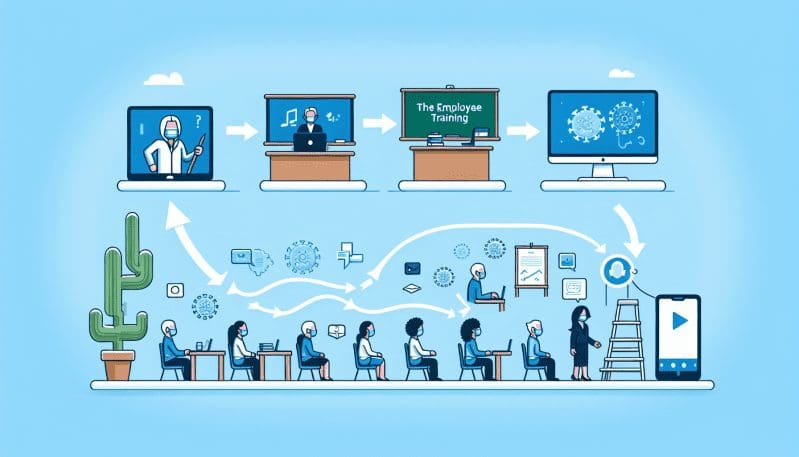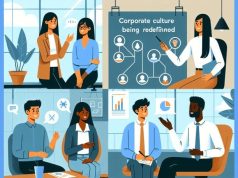As the dawn of the post-pandemic era rises, companies worldwide face an unprecedented challenge – the evolution of employee training to suit a workforce that has been irrevocably changed by recent events. In a world where remote work has leaped from occasional luxury to everyday norm, training and development programs must undergo a metamorphosis to remain relevant, engaging, and effective.
The global workforce has tasted the potential of digital collaboration and the flexibility it offers. This shift has catalyzed an increased demand for work-life balance, with employees seeking more control over when and how they work and learn. In response, innovative organizations are reimagining their training strategies, embedding technology as the cornerstone of employee development.
One such organization that embodies the cutting edge of employee training is NextTech Innovations. They have pioneered a ‘Learning Anywhere, Anytime’ program, harnessing the power of mobile microlearning platforms. By serving bite-sized educational content on-demand, they cater to the modern learner’s preference for accessible, just-in-time knowledge acquisition – an approach that has seen a notable increase in engagement and retention rates.
The role of technology in facilitating this shift cannot be overstated. Video conferencing tools like Zoom and collaborative platforms such as Slack and Trello have transformed into virtual classrooms and teamwork hubs. Advanced Learning Management Systems (LMS) with AI-driven personalized learning paths have made it possible to tailor the training experience to individual needs, a perk that traditional in-person training could rarely offer.
Fostering a culture of continuous learning is essential to adapt to the rapid pace of change in the modern business landscape. By providing employees with opportunities to acquire new skills and knowledge continuously, organizations like Cognizant are ensuring that their workforce remains agile and competitive. Their ‘2020 Learning Challenge’ encouraged employees to dedicate 20 hours to learning new skills, with digital badges and certifications to sweeten the deal.
Yet, the impact of these trends on employee engagement and productivity is perhaps the most telling sign of success. Deloitte’s ‘2021 Global Human Capital Trends’ report cites that organizations with a strong learning culture are 52% more productive. Moreover, LinkedIn’s ‘2020 Workplace Learning Report’ highlights that 94% of employees would stay longer at a company that invests in their career development.
Case studies of companies like AT&T and Unilever showcase the success of adaptive training programs. AT&T’s ‘Workforce 2020’ initiative, which includes a massive reskilling effort encompassing online courses, career centers, and degree programs, is a testament to the company’s commitment to prepare its employees for the future. Unilever’s ‘Flex Experiences’ program connects staff to short-term projects across different areas of the business, promoting a dynamic learning environment and cross-functional growth.
In conclusion, as we sail into the future of work, it’s clear that the metamorphosis of employee training will play a pivotal role in shaping agile, knowledgeable, and satisfied workforces. For organizations looking to navigate the post-pandemic world successfully, the message is clear: embrace technology, nurture a learning culture, and continuously innovate to keep both training programs and employees thriving.
The insights gleaned from these cutting-edge companies provide a roadmap for others. By embracing the digital shift and championing employee development, the very landscape of work, worker, and workplace can be transformed for the better.




























